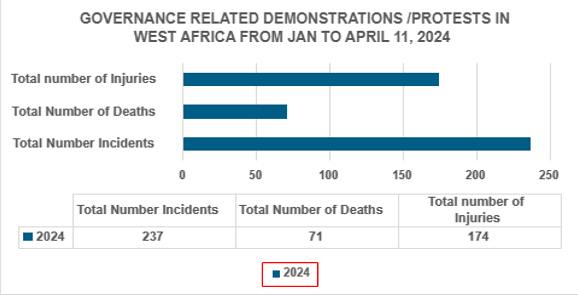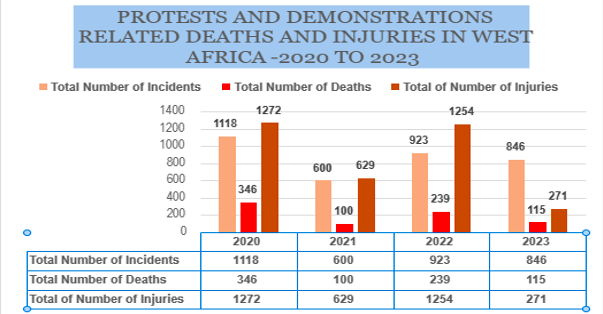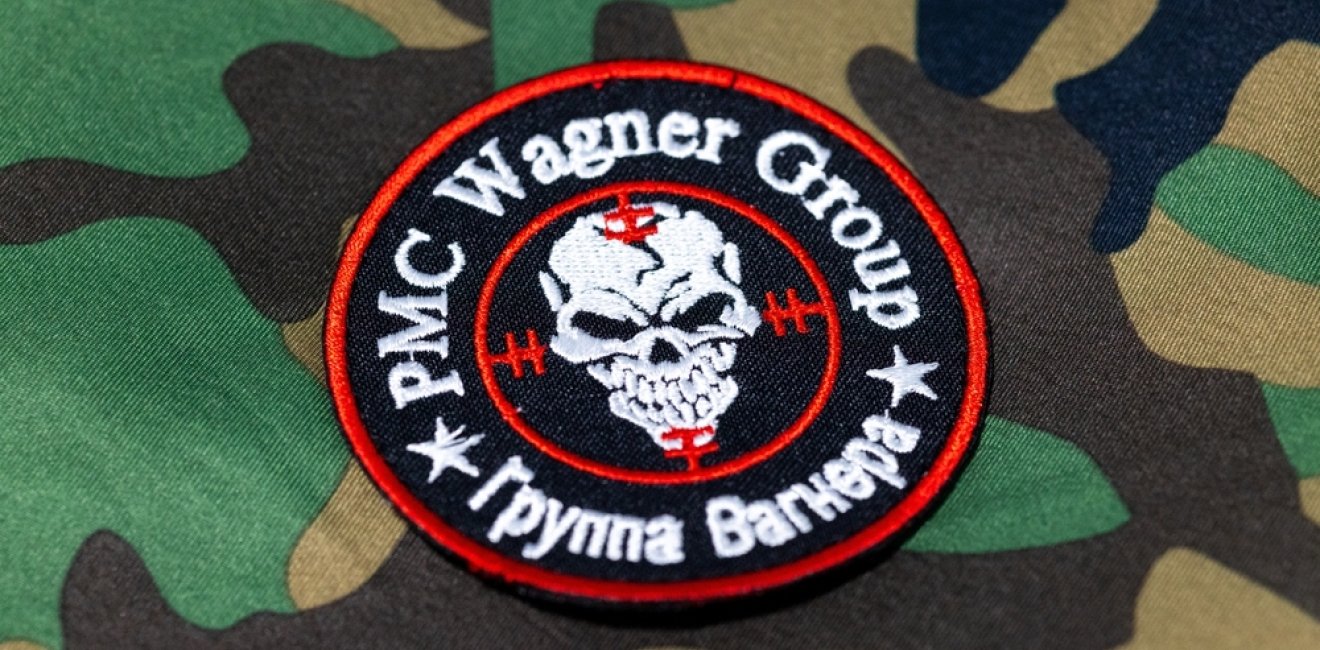
A blog of the Africa Program
Introduction
Since 2020, the Russian paramilitary group, Wagner, has infiltrated several African defense and security forces, including those of the Central African Republic (CAR), Mali, Burkina Faso, and Niger. This infiltration marks a new era of military cooperation between Russia and these countries in their ongoing fights against local, regional, and global threats of terrorism. The concerned countries have welcomed military exercises with Wagner and believe it to be a reliable partner for ending terrorism and insecurity and bringing lasting peace. CAR, Mali, Burkina Faso, and Niger have expressed support for and confidence in Russia through their collaboration with Wagner, and they have turned away from their US and European partners. This blog aims to analyze the impact of this paradigm shift on these countries’ defense and security forces and their respect for human rights, rule of law, and democracy. It also discusses the future of human rights and the rule of law in countries where Wagner is collaborating with security forces. Finally, it offers policy options and recommendations for more collaborative approaches among the actors in assuring that human rights and rule of law ethos are upheld within the new paradigm.
The Troubled Human Rights Record of Africa’s Security Sector
In many African countries, state security and defense forces, both police and military, have been known for abuses against civilians. Despite significant investments in human rights and rule of law trainings by traditional donors and local civilian government, security forces across Africa continue to brutalize civilians in the name of maintaining law and order. There have been numerous instances in Africa where peaceful demonstrations by political parties and trade unions have been met with violence by security forces, even when the right to demonstrate peacefully is enshrined in the country’s constitution. Security forces often repress peaceful demonstrations by killing and injuring civilians. This raises concerns about the professionalism of security personnel on the continent. Abusive behaviors, such as brutality and repression of civilians, have seriously damaged civil-military relationships in many African countries. For this reason, these relationships in Africa are often characterized by distrust, hatred, and strained state-citizen relations. These issues seriously undermine the social contract between states and their citizens. Moreover, the repression and brutality of security forces in the name of preserving law and order has been a driver of radicalization in communities where extremist groups operate.
A United Nations Development Program (UNDP) report highlights concerns regarding grievances against security actors, namely the military, police, and judicial system. The study found that 62 percent of respondents reported having little or no trust in the police. Additionally, the study reveals that 59 percent of respondents held a similarly negative perception of the military. Overall, these findings underscore significant divisions between communities and security actors, presenting an opportunity for violent extremist group recruitment.
Despite significant international community and local investments in security sector reform, human rights violations and military coups continue to occur in Africa. All military coups that occurred from 2020 to 2023 in West Africa were orchestrated by military personnel who received specialized training from either the US military or EU member states, including France, Germany, and Spain. The failure of military cooperation and training among Western countries and African states has raised concerns about the efficacy of democratic governance in Africa. Additionally, the failure of security sector reform in many African countries has been a cause for serious concern. The US and its allies have continue to invest millions of dollars in security sector reform initiatives primarily focusing on human rights, respect for civilian rule, and the provision of equipment. Yet, the results have been generally poor. There is no doubt about the importance and impact of security sector reforms and their contribution to restoring state authority in countries emerging from violent conflict and insecurity, as such reforms are critical to achieving stability and peace. However, for sustainable peace and security to endure in Africa, it is critical to prioritize the promotion of human rights, especially at the community level, as well as quality healthcare systems, youth employment, economic empowerment of women and youth, and infrastructure development, including road networks and electricity. US and EU partners should not view capacity building within police and military institutions as the ultimate goal, but rather as a means to achieve political stability, peace, and security for citizens.
Experts and analysts in Africa question whether military cooperation and security sector reforms have yielded positive results in terms of respect for human rights and the rule of law. Currently, there is a surge in brutality and repression against civilians and suspected terrorists in West Africa. Data from the National Early Warning System of the West Africa Network for Peacebuilding (WANEP-NEWS) indicates an alarming increase in protest and demonstration-related civilian deaths and injuries due to security force crackdowns on civilians, as demonstrated in the following graphs:


The future of human rights and the rule of law in countries where the Wagner Group controls the security forces
As Russia continues to consolidate its influence and military presence in Africa—particularly in the Central African Republic, Mali, Burkina Faso, and Niger—it is likely that the Wagner Group will expand further, and further infiltrate the security apparatus of these and other African countries. Given their track records in CAR, Mali, and Burkina Faso, security forces, particularly those who have collaborated with Wagner, will continue to commit human rights violations against civilians. This will increase the level of mistrust and animosity that already exists between security forces and the population. It will also likely lead to internal conflict within the security forces, potentially undermining security and defense commands and causing disorder within countries.
To prevent such events from occurring, Russia—through Wagner—has contributed to the establishment and consolidation of authoritarian regimes that rely on violence and human rights violations to suppress discontent. In Mali and Burkina Faso, military authorities have recently restricted the activities of political parties and some media outlets.
Additionally, many civil society organization actors, journalists, and activists have been arrested or threatened. In the ongoing fight against armed groups, it is important to consider the level of propaganda and disinformation being used by military authorities to influence citizens' perceptions of state security and defense forces. The increase in the use of traditional state-owned media and other social media platforms is facilitating disinformation campaigns. Additionally, some peace and security agreements previously signed between states and armed groups or bilaterally between governments have been partially or completely revoked. This further contributes to the degradation of the peace and security landscape and escalates violence, especially in conflict-prone communities in the affected countries.
The context shared above might suggest authoritarianism as an effective means for African countries to address their security threats. Instead, growing authoritarianism fuels anti-democratic practices, ethnic and communal violence, and great power competition in the region. The recent rise in authoritarian regimes in West Africa, particularly in countries that have recently experienced military coups, poses a threat to the US and its interests in the region, including the Central Sahel countries.
Policy Options and Recommendations
- The US government should continue to support the African Union and the Economic Community of West African States (ECOWAS) in their efforts to restore constitutional order in Burkina Faso, Mali, Guinea, and Niger.
- Despite the high level of atrocities and human rights violations committed by warring factions in the Central Sahel region, this crisis has not yet received sufficient attention from the international media or key decisionmakers. The media and broadcasting corporations should be encouraged to pay greater attention to the crisis in the Central Sahel region and report on the human rights violations committed by warring factions.
- The US government should continue to provide context-specific trainings that are adapted to the socio-political realities and cultures of beneficiary countries. It is important the US maintains its long-term commitment to its partners regarding the assistance provided.
- The US drone base in Niger serves as a vital counterterrorism unit and deterrent against the progression of terrorist and armed groups in West Africa and Europe. It also contributes to countering the growing influence of Russia, China, Iran, and Turkey in the region. The US government must sustain engagement and dialogue with the military authorities in Niger to maintain that drone base.
- The US government's 'soft power' engagement in the Central Sahel region should prioritize strengthening the knowledge and operational capacities of youth- and women-led groups and organizations. This will contribute to promoting accountability and good governance that adheres to democratic principles.
- The US government should consider the current situation in Central Sahel a national security threat and adjust its stance accordingly in these countries, as the Obama administration did in 2013 when a democratically-elected president was overthrown by a military coup in Egypt.
- As tensions continue to rise between the military authorities, opposition political parties, and other local stakeholders, the US government should support a regional coalition of civil society organizations (CSOs) to facilitate inclusive national dialogues. This will help improve communication among key actors in Mali, Burkina Faso, Guinea, and Niger.
Local civil society organizations (CSOs) working on early warning and conflict prevention should receive adequate support to engage community actors in dialogue and mediation, particularly in conflict-prone areas. This will enable them to anticipate, prevent, and respond to potential conflicts across communities.
Author

Program Officer, West Africa Network for Peacebuilding (WANEP)

Africa Program
The Africa Program works to address the most critical issues facing Africa and US-Africa relations, build mutually beneficial US-Africa relations, and enhance knowledge and understanding about Africa in the United States. The Program achieves its mission through in-depth research and analyses, public discussion, working groups, and briefings that bring together policymakers, practitioners, and subject matter experts to analyze and offer practical options for tackling key challenges in Africa and in US-Africa relations. Read more

Explore More in Africa Up Close
Browse Africa Up Close
The Innovative Landscape of African Sovereign Wealth Funds



